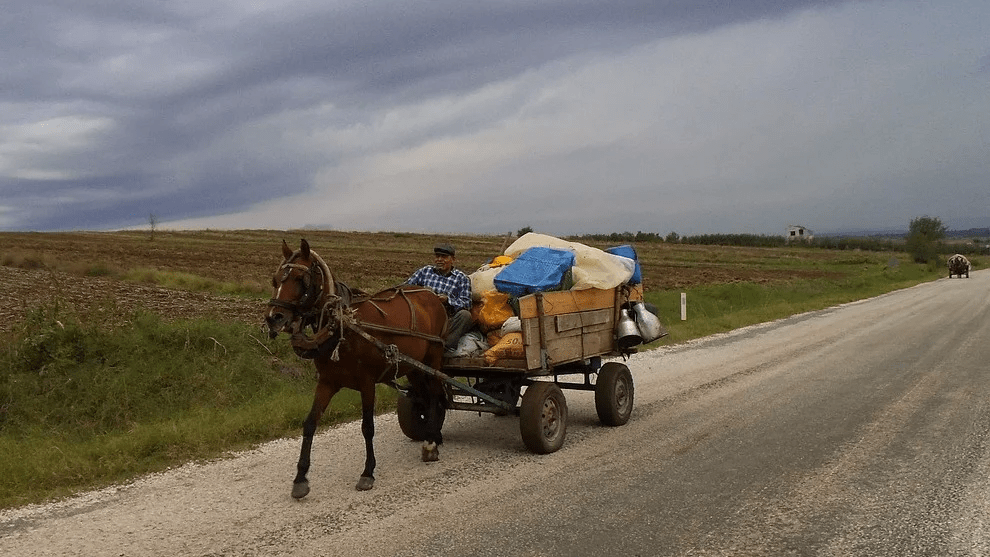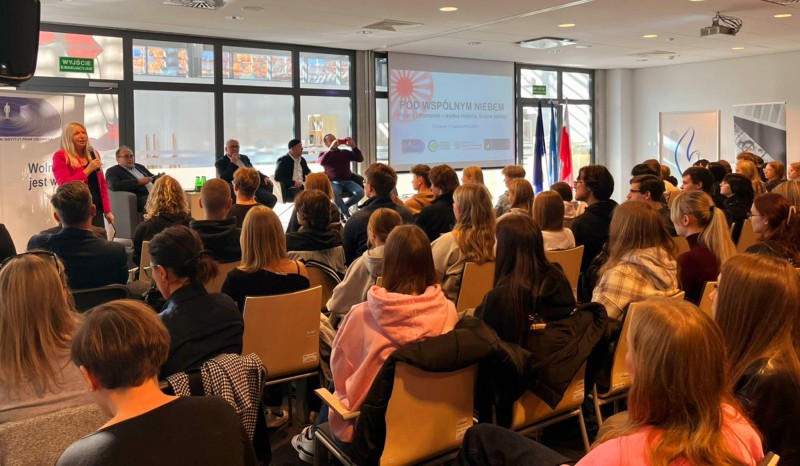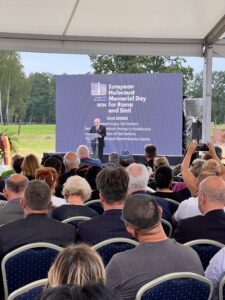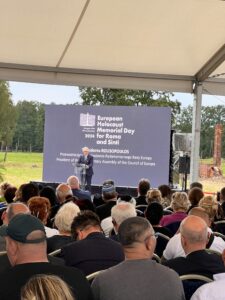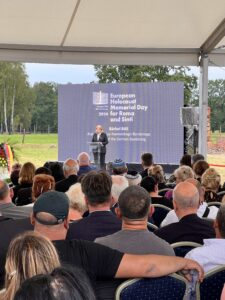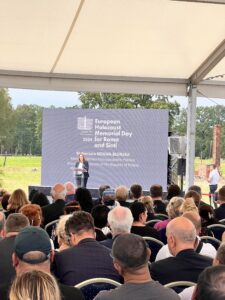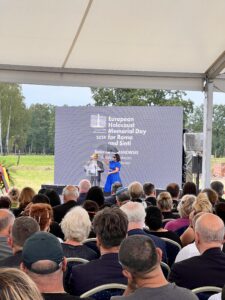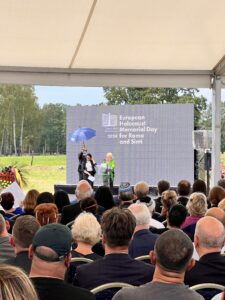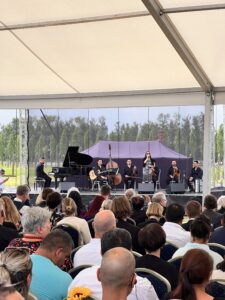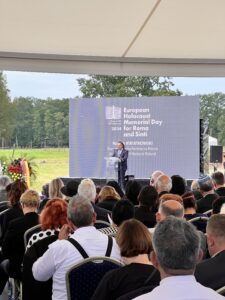The Marek Edelman Dialogue Center in Łódź invites you on Saturday, November 30 at 5:00 PM to the City Museum of Łódź for a lecture by Dr. Monika Weychert entitled “Even Death Fears Auschwitz. Commemorations and Holocaust Art Created by People with Roma Roots”. The event accompanies the first solo exhibition in Poland by the Roma artist and writer Ceija Stojka, “Ceija Stojka (1933-2013): “I Cannot Forget””.
- Nawet śmierć się boi Auschwitz. Prelekcja dr Moniki Weychert w Muzeum Miasta. In: UML Łodź. https://uml.lodz.pl/lato-w-lodzi/festiwale-i-koncerty/wydarzenie/nawet-smierc-sie-boi-auschwitz-prelekcja-dr-moniki-weychert-w-muzeum-miasta-lodzi-id99606/2024/11/30/


